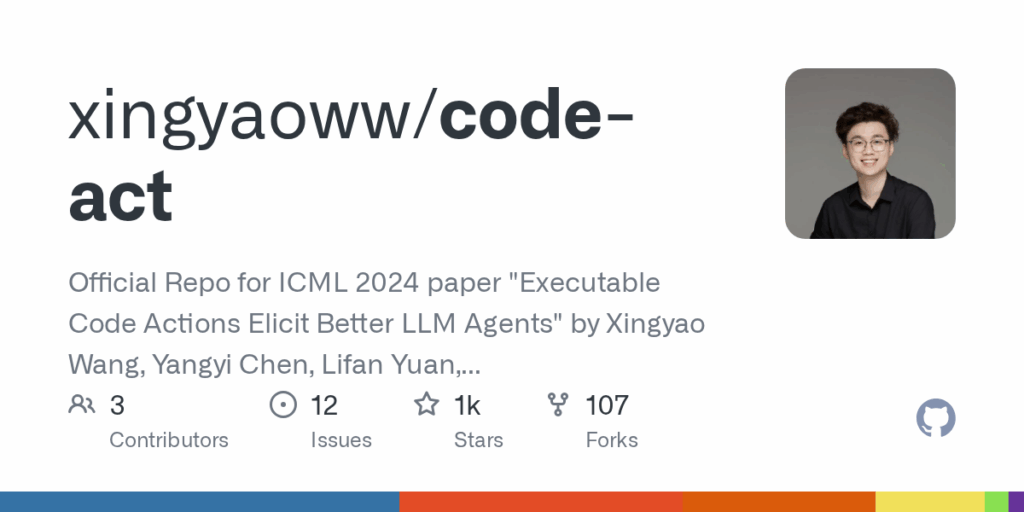code act
Basic Information
This repository implements and documents CodeAct, a proposal to use executable code as a unified action space for LLM agents. It accompanies an ICML paper and provides the research artifacts needed to reproduce experiments: an instruction-tuning dataset (CodeActInstruct), trained agent checkpoints (CodeActAgent variants), evaluation materials (M3ToolEval and API-Bank analysis), and deployment examples. The codebase includes a model-serving workflow that exposes models via an OpenAI-compatible API, a containerized code execution engine that runs a Jupyter kernel per chat session, a chat user interface and a simple Python demo client, plus scripts for Docker and optional Kubernetes deployment. The README bundles step-by-step instructions to serve models via vLLM or llama.cpp, start the execution engine, run the chat UI or CLI demo, and reproduce data generation and training experiments for research and development.








